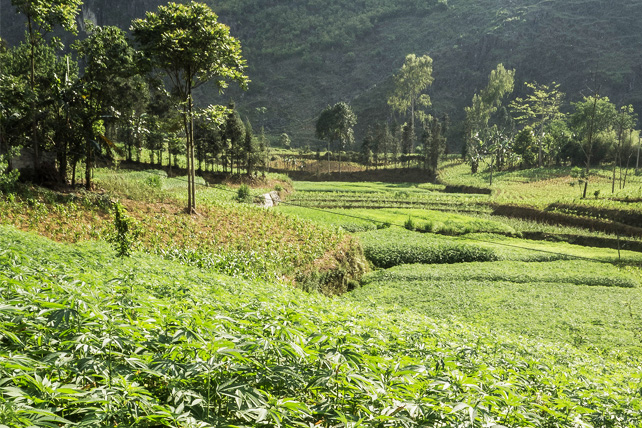Sri Lanka will begin cultivating cannabis for medical purposes later this year, the health minister has announced.
Health minister Rajitha Senaratne said he plans for cultivation to take place across 100 acres of designated cannabis plantation land in the north-central Anuradhapura and Polonnaruwa districts. This is estimated to produce 25,000kg of the drug annually, which will be used for domestic Ayurveda – a South Asian system of medicine – and for export to North America.
Farmers will be hired by the state to cultivate the cannabis, and production will be overseen by the military.
“If the private sector is given the green light for cannabis cultivation it will require permits and other regulatory mechanisms will have to be imposed. This way, there will be no need to issue permits, since no private parties are involved,” Senaratne told the Sunday Observer.
Cannabis prohibition was initiated by British colonisers in Sri Lanka (then called Ceylon) in the late nineteenth and earlier twentieth century. Despite the country gaining independence in 1948, it has retained cannabis prohibition; the drug’s production, sale, and possession continue to be outlawed under the Poisons, Opium, and Dangerous Drugs Act.
However, despite cannabis’ illegality, authorities have acknowledged its medical potential. When batches are seized by law enforcement, small portions are often allocated to Ayurvedic practitioners to develop into medicine. However, this has proved insufficient; “by the time our native doctors get this cannabis, it is about four to five years old and it has lost its effectiveness,” Senaratne claimed.
Senaratne wants doctors to have access to fresh and high-quality cannabis which, he says, should be developed into medicines – not sold as combustible plant material. “It gives adverse effects only if smoked, if used for syrup or a drug, this has no harmful effects,” he claimed. “[The] Western world is currently using cannabis for tranquilizers, for drugs for depression and other psychological disorders”.
This is a revolutionary move for the country and the continent; there are currently no countries in Asia which permit the production and sale of cannabis for medical purposes (although Singapore has recently begun medical research into synthetic cannabinoids).
Senaratne’s plans have been endorsed by the health ministry’s advisory committee, and are now awaiting final approval from the cabinet. He expects cultivation to begin before the end of 2018.


